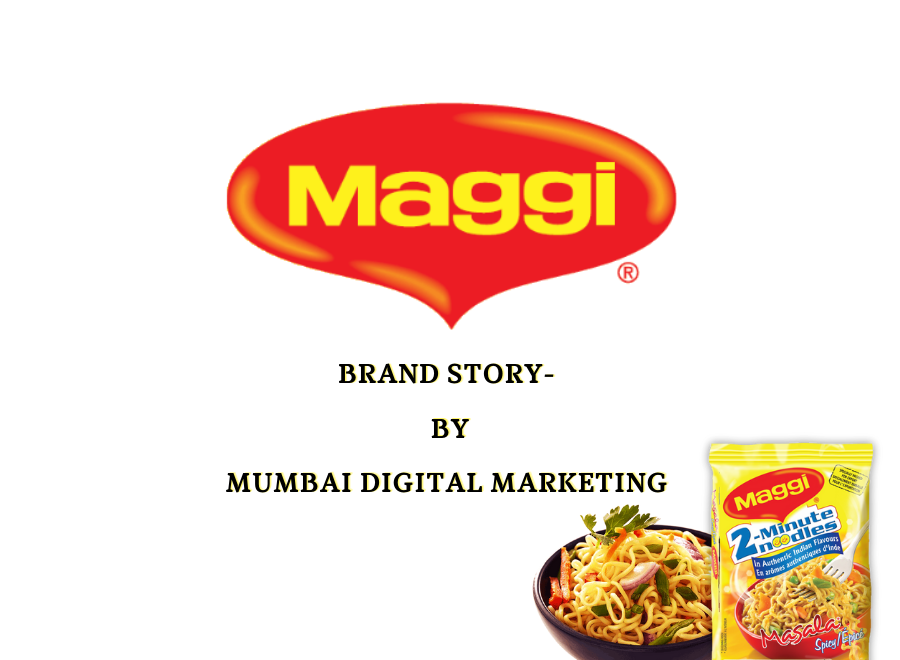Case Study – Maggi comeback!















MAGGI – a name so common to Indians, whether from metro cities or remote towns that it has almost become synonymous with instant food options for people of any age. It is noteworthy how Maggi has built this whole empire with unfailing brand loyalty and engagement with the consumers at a micro-level. A subject of brand studies at top B-schools, Maggi set the tone right during its 150-year-old journey and is reaping the benefits today after a great comeback from a massive crisis.
It was invented during the Industrial Revolution in Europe as a cheap legume meal option for workers, who needed something that can be prepared and consumed quickly. It still does serve the same purpose in more than one way. The product became widely popular in Switzerland and gradually entered other countries having similar needs for an instant meal.
Making its way up the popularity ladder, Maggi GmBH – the initially registered company was acquired by the Nestle group in 1947. Soon after, it started making its way to India, only to create another example of extraordinary brand loyalty. It took almost 40 years to complete the journey and Maggi reached India in 1983. What happened after is an exciting story!
In a mere 20 years, Maggi became the market leader in the instant noodles category, finding itself in almost every home, every small Kirana shop to supermarkets. Starting with a campaign to target homemakers, Maggi shifted its strategy to avert the allegations of being an unhealthy snack. Soon a new campaign was drawn out to position Maggi as a health product and targeted kids.
Successful marketing campaigns have been Maggi’s plus point and they have always scored high with their simple yet effective campaigns. Until 2009, Maggi had not actively engaged celebrities to endorse the brand. After celebrating 25 successful years of the “Me and Meri Maggi” campaign, the instant noodle maker brought in big names like Amitabh Bachchan, Preity Zinta, and Madhuri Dixit to uplift the brand’s existing homely image.
The competition was not sitting idle during all this time. While Maggi enjoyed the market leader position and managed to introduce product variants and extensions to capture an even bigger chunk of the pie, brands like Nissin and ITC ramped up product innovation and marketing. In 2013 Maggi saw a dip in its sales due to strong strategy and competition from other local and global players. Another household name Horlicks launched a new product Foodles to capture the existing market, similarly there are many other local brands which currently compete in the same segment of instant food and noodles.
2015 was a bad year for Maggi and parent company Nestle. After allegations of containing above acceptable levels of Monosodium Glutamate (MSG), raised by a testing lab in Uttar Pradesh, the whole nation witnessed an extraordinary episode of unfolding events. Gradually Maggi was removed from shelves following an order issued by the honorable Supreme Court while FSSAI testings were done with samples from various regions and results were awaited. A heartbreak for millions of ardent Maggi fans, the product faced a complete shut-out from the market across states in India. It was only after five long dreary months that the SC cleared Maggi for consumption again and the brand resurfaced with all its might.
Leveraging the nostalgia associated with Maggi and its users – pools of people who have had Maggi since their school and college hostel days, in between classes and job interviews, a strategic marketing campaign was launched in November 2015. The company recuperated from its tremendous losses with the love of people. After abating all allegations, Maggi is back in the market with approximately 57% share currently and continues to build its way into homes, hostels, canteens, tea shops and cafes. Innovation with recipe worked brilliantly for Maggi as part of an old campaign, and it is working again to restore the faith in the brand.
Digital Marketing Strategy adopted by Maggi:
Suresh Narayanan said, “We will connect digitally with our target audience with our target group, and carry out a lot of events for branding.” The company is engaging actively in social media and is building a strong digital presence to strengthen the Maggi brand. Along with TV and print campaigns, the company is engaging with customers via Facebook and Twitter. “Digital and social media is central to our brand-building process. We believe that big things happen for brands when these two are in synergy,” he said. The company has a digital acceleration team, which was responsible for the ‘We Miss You Too’ Maggi campaign and has also set up 24×7 toll-free consumer services to address consumer concerns.” For us, the concept is not just digital media, but of competing in a digitally-connected age,” he added. Maggi also had a tie-up with a famous e-commerce website ‘Snapdeal.com’ and came up with the idea of selling a Maggi welcome kit which was a box containing around 12 packets of Maggi, 2016 Maggi calendar, a Maggi fridge magnet, and a Maggi welcome back letter.
Results achieved by Maggi:
“Snapdeal sold out the first batch of 60,000 Maggi Welcome Kits within 5 minutes of Maggi Flash Sale going live today. There has been much anticipation for the return of one of India’s favorite brands and we have witnessed a phenomenal response to this sale from customers across the country,” Snapdeal Senior Vice President (Partnerships and Strategic initiatives) Tony Navin said. Nestle India sold 3.3 crore units of Maggi in the first 10 days of its relaunch. The Snapdeal offer is christened ‘Dil ki Deal’ and the hashtag ‘DILKIDEALWITHMAGGI’ started trending on Twitter after the sale was resumed.
Where on one hand snapdeal sale got sold out Maggi conducted various online competitions asking its consumers to express their favorite moments and asking them what Maggi brought back with its comeback and consumers participated with full enthusiasm. Twitter page of Maggi, Facebook page, and youtube page were crowded with its fan followers expressing their trust in Maggi.
Learning :
Choosing a digital market and digitally getting connected to the consumers is one of the most effective and intelligent ways to reach out to a large audience. Getting a tie-up with an e-commerce website for the sales of the welcome kit proved to be successful as the flash sale immediately got sold out and the company could anticipate the consumer’s want for the product. A company’s presence in different social media sites builds trust in the hearts of the consumer and displays the authenticity of its brand.
It is an extraordinary study to learn how Maggi created its own universe within a sub-segment in the instant food category. A largely sold and cherished product, Maggi continues to inspire us to do better and do more.
We at MDM find the story of Maggi worth telling and would love to hear from you about your experience with Maggi. In your startup journey, how does the story of Maggi inspire you?

